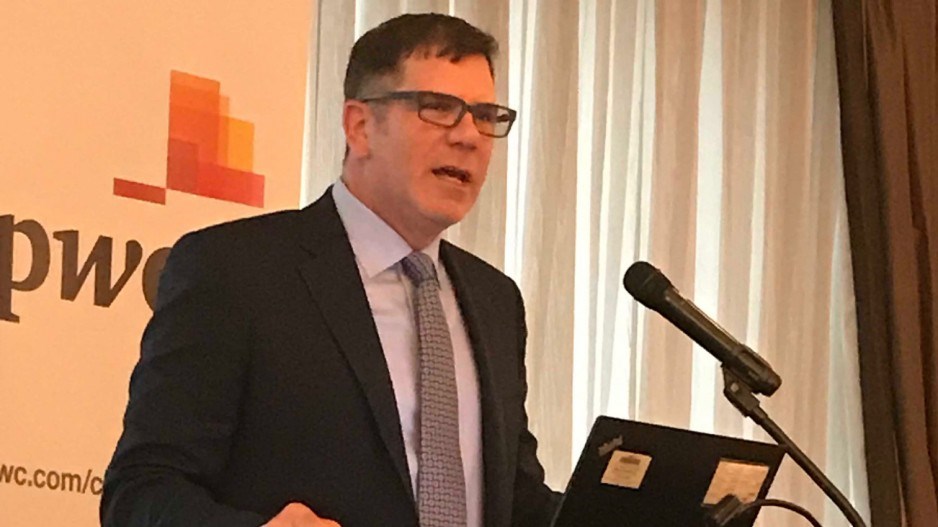B.C.’s mining sector generated $12.3 billion in gross revenue in 2018 – a nearly $4 billion increase over 2016 – according to a new PwC report.
Higher prices for metallurgical coal and copper helped boost net income for B.C.
Of the $12.3 billion generated in gross revenue in 2018 – a record, according to PwC – metallurgical coal mining alone represented more than half ($7 billion). Payments to government in 2018 through taxes was $900 million, compared to $650 million in 2016.
“This again is a record year for payments to government,” Kelsey Binns, assurance manager at PwC Canada, said Thursday, May 16, in a presentation to the Vancouver business community.
While Teck Resources (TSX.B
“That added probably $300 million to top-line revenues,” Platt said.
B.C.’s mining sector directly employed 11,281 workers in 2018, up from 9,329 in 2016. That’s not including all the jobs that mining in B.C.
Exploration spending was also up in 2018 – $102 million, compared with $95 million in 2016.
Those numbers are just for
A lot of the exploration spending in 2018 was in the Golden Triangle in northwest B.C.
The growth in mining and exploration in B.C.
Michael Goehring, the Mining Association of BC’s new CEO, said the PwC report confirms that the sector has seen increased stability in 2017 and 2018.
But he warned of “headwinds” posed primarily by global economic trends and “uneasiness with regulatory developments in Canada and British Columbia. They are tempering growth and they’re tempering investment in British Columbia.”
He said the biggest problem in B.C.
“This situation needs to be addressed,” he said. “We have to sharpen our competitive edge.”
He said B.C.
Citing the B.C.
He said the three biggest concerns
"The problem is the current (carbon) tax structure is not revenue neutral, and it effectively promotes higher emission production elsewhere in the world, because our low emission mines are becoming less competitive," Goehring said. "So it effectively promotes carbon leakage."
He added a more timely and transparent regulatory framework is needed.




